
Unit1 Teenage life核心考点归纳
【重点单词】
|
1 |
debate n. 辩论;争论 vt.& vi. 辩论;争论(教材P12) |
|
归纳 拓展 |
(1)debate (with sb.) about/on/over sth. (与某人)辩论/讨论某事 (2)under debate 在讨论中;在辩论中 |
①After years of heated debate,_gray wolves were reintroduced to Yellowstone National Park.
经过多年的激烈辩论,灰狼重新回到黄石国家公园。
②We debated_with_them_on the question till late into the night.
我们就这个问题和他们辩论到深夜。
③As far as I know, the proposal is still under_debate.
据我所知,这一提议还在讨论中。
④The whole class will debate whether the mobile phones should be banned at school.
整个班级将讨论是否应该禁止在学校使用手机。
|
2 |
prefer v. 较喜欢;选择某事物(而不选择其他事物)(教材P12) |
|
归纳 拓展 |
(1)prefer to do/doing … 更喜欢做…… prefer sb. to do … 更喜欢让某人做…… prefer sth./doing … to sth./doing … 与……相比更喜欢…… (2)preference n. 偏爱;优先权;偏爱的事物 have a preference for … 偏爱…… |
①Next time I prefer_to_stay at home and study!
下次我更喜欢待在家里学习!
②Nowadays many children prefer_surfing the Internet at home to_taking exercise outdoors.
如今许多孩子宁可待在家里上网,也不愿意到户外进行锻炼。
③A teacher should not have_a_preference_for any one of his pupils.
教师不应偏爱任何一个学生。
|
3 |
suitable adj. 合适的;适用的(教材P12) |
|
归纳 拓展 |
suitable for (doing) 对……(做某事)适合的 suit v. 适合于,适宜 suit sb. 适合某人 suit sth. to sth./sb. 使适合(或适应)某事物(或人) |
①I can’t find suitable words to express what I mean.
我找不到贴切的词来表达我的意思。
②This programme is not suitable_for children.
这个节目儿童不宜。
③He can suit his conversation to whoever he’s with.
无论跟谁说话,他都能说到一块儿。
[易混辨析:suitable/fit]
|
suitable |
指对于某个人、某种情况或某一目的而言具备合适特性的,常后接介词for或动词不定式 |
|
fit |
指在质量、素质、技能等方面适合做某事的,常后接介词for或动词不定式 |
④That wine is not fit_to drink.
那种葡萄酒不宜饮用。
⑤She had no other dress suitable_to wear for the party.
她没有其他适合在聚会上穿的裙子。
|
4 |
actually adv. 事实上;的确(教材P13) |
|
归纳 拓展 |
actual adj. 实际的;真实的 actuality n. 实际情况;真实情况 in actuality 实际上 |
①We’re not American, actually,_we’re Canadian.
实际上我们不是美国人,我们是加拿大人。
②I don’t want to boast, but I can actually speak six languages.
不是我吹嘘,我确实能讲六种语言。
③I’m not joking. It is his actual age. He may look 35, but he’s actually 55. In_actuality,_he is the grandfather of a 3-year-old boy.
我不是开玩笑。这是他的实际年龄。他看上去35岁,但实际上他55岁。实际上,他是一个3岁男孩的祖父。
|
5 |
challenge n. 挑战;艰巨任务 vt. 怀疑;向……挑战(教材P14) |
|
归纳 拓展 |
(1)challenge sb. to do sth. 激励某人做某事 challenge sb. to sth. 向某人挑战某事 (2)face a challenge 面临挑战 meet/take up a challenge 迎接挑战 (3)challenging adj. 挑战性的 |
①It’s more likely that none of us start a conversation because it’s awkward and challenging,_or we think it’s annoying and unnecessary.
更可能的是,我们中的任何一个人都没有开始一次谈话,因为这很尴尬和具有挑战性,或者我们认为这是烦人和不必要的。
②Mike challenged me to (play) another tennis game.
迈克向我挑战再打一场网球比赛。
③His new findings challenged_him_to_rethink the skills he was using.
他的新发现激励他重新思考他所使用的技巧。
④Mary now faces_the_biggest_challenge of her career.
玛丽现在正面临她事业上最大的挑战。
|
6 |
confuse vt. 使糊涂;使迷惑;混淆(教材P14) |
|
归纳 拓展 |
(1)confuse A with/and B 将A和B混淆 (2)confusing adj. 难以理解的;不清楚的 confused adj. 糊涂的,迷惑的;不清楚的,混乱的,难懂的 be/get confused 被弄糊涂 (3)confusion n. 混乱;困惑 confusion about/over/as to 关于……的困惑,不确定 in confusion 困窘;尴尬 |
①Confused,_I simply based my decision on the ratings.
我很困惑,我只是根据评分来决定。
②The instructions on the box are very confusing.
盒子上的使用说明令人费解。
③His writing is so confused that it’s difficult to make out what he is trying to express.
他的作文如此难懂,以至于很难弄清楚他到底想表达什么。
④I can’t see how anyone could confuse_you_with another person!
我不明白怎么会有人把你和另外一个人搞混!
|
7 |
fluent adj. (尤指外语)流利的;熟练的(教材P14) |
|
归纳 拓展 |
(1)be fluent in … 讲一口流利的…… (2)fluently adv. 流利地;熟练地 |
①I can speak fluent Mandarin and Cantonese as well as some English.
我能说流利的普通话和广东话,也能说一些英语。
②She was_fluent_in German, French and English.
她的德语、法语和英语都很流利。
③To my surprise, he spoke Arabic fluently.
让我惊讶的是,他的阿拉伯语说得很流利。
|
8 |
graduate vi.& vt. 毕业;获得学位 n. 毕业生(教材P14) |
|
归纳 拓展 |
(1)graduate from 从……毕业 graduate in 毕业于(……专业) (2)graduation n. 毕业 after graduation from … 从……毕业之后 |
①Maurice Ashley was kind and smart, a former graduate returning to teach, and this job was no game for him; he meant business.
莫里斯·阿什利是个善良聪明的人,以前是从这里毕业的,现在又回来教书了,这份工作对他来说不是游戏,而是一种责任。
②He graduated_from York with a degree in Psychology.
他毕业于约克大学,获心理学学士学位。
③Only thirty students graduated_in Chinese last year.
去年只有三十名学生获得汉语学士学位。
④After he graduated from high school, Herriot made up his mind to be a vet, especially for dogs.
=After his graduation_from high school, Herriot made up his mind to be a vet, especially for dogs.
高中毕业后,赫里奥特决定做一名兽医,尤其是为狗治病。
|
9 |
recommend vt. 推荐;建议;介绍;劝告(教材P14) |
|
归纳 拓展 |
(1)recommend doing sth. 建议做某事 recommend sb. to do sth. 建议某人做某事 recommend sth. to sb. 把某物推荐给某人 recommend sb. as … 推荐某人为…… recommend+that … 建议……[从句中的谓语动词用(should+)动词原形] (2)recommendation n. 推荐;介绍信 |
①He recommends_wearing safety equipment while inspecting the construction site.
他建议视察建筑工地时要佩戴安全装备。
②I recommend_you_that you (should) think very carefully before you do anything foolish.
=I recommend_you_to_think very carefully before you do anything foolish.
我建议你三思,以防做出任何蠢事。
③He recommended_me_as monitor in our class.
他推荐我做我们班的班长。
|
10 |
advance n. 进步,进展 v. 前进;促进;提前 adj. 提前的,预先的(教材P14) |
|
归纳 拓展 |
(1)make an advance/advances in 在某方面有进步/发展 (2)in advance(=ahead of time) 提前 in advance of 比……进步;在……之前 (3)advanced adj. 高级的;进步的;先进的 |
①This will further advance the friendly relations between the two countries.
这将进一步促进两国的友好关系。
②We have_made_great_advances_in developing our ship-building industry.
我们在发展造船工业方面有了很大的进步。
③I would like to warn you in_advance that if you smoked here you would be fined.
我想提前提醒你,如果你在这里吸烟,你就会被罚款。
④If you aren’t nervous about the coming exam, you are sure to be far in_advance_of your class.
如果你对即将到来的考试不紧张,你一定会在班上遥遥领先的。
⑤Having shown you around our school, I will introduce our most advanced science lab to you.
领着您参观我们学校后,我将向您介绍我校最先进的科学实验室。
|
11 |
extra-curricular adj. 课外的;课程以外的(教材P14) |
|
归纳 拓展 |
extra-curricular 课程以外的 extra 超过;以外+curricular 课程的→课程以外的 extra-ordinary adj. 格外的 extra 超过;以外+ordinary 普通的→超出普通→格外的 extra-special adj. 非常特别的 extra 超过;以外+special 特别的→非常特别的 extra-official adj. 职权以外的 extra 超过;以外+official 职权的→职权以外的 extra-solar adj. 太阳系以外的 extra 超过;以外+solar 太阳的→太阳系以外的 |
①I don’t have the time for any more extra-curricular activities.
我没有时间从事更多的课外活动了。
②Read more books, which can add some extra-curricular knowledge.
多读书,可以让你多增加一些课外知识。
|
12 |
obviously adv. 明显地,显而易见地(教材P14) |
|
归纳 拓展 |
obvious adj. 明显的,显而易见的 be obvious to sb. 对某人来说显而易见 It is obvious (to sb.) that … (对某人来说)……很明显 |
①Obviously,_he’s fallen in love with the girl.
显而易见,他爱上了这个女孩。
②The disadvantages are_obvious_to us.
这些不利条件对我们而言是显而易见的。
③It_was_quite_obvious_to_her_that she was not optimistic about her future.
很显然她对她的前途不乐观。
|
13 |
responsible adj. 有责任的,应负责任的(教材P14) |
|
归纳 拓展 |
(1)be responsible for 应对……负责,对……有责任 be responsible to sb. 对某人负责 (2)responsibility n. 责任,责任心 take responsibility for 承担对……的责任,为……负责 a sense of responsibility 责任感 have responsibility for 对……有责任,对……负责 |
①He’s a very responsible sort of person.
他是个非常有责任心的人。
②I am_responsible_for the matter. None of others’ business.
这件事由我负责,跟旁人不相干。
③The government will_be_responsible_to the President alone.
政府只对总统一人负责。
④We need to take_responsibility_for our own health.
我们必须对自己的健康负责。
⑤The Act provides that only the parents of a child have_responsibility_for the child’s financial support.
法令规定只有孩子的父母才有责任为孩子提供经济支持。
|
14 |
expert n. 专家;行家 adj. 熟练的;内行的;专家的(教材P17) |
|
归纳 拓展 |
an expert on/in/at … 某方面的专家 be expert in/at 在某方面擅长 |
①I suggest you leave it to an expert.
我建议你把它留给专家来解决。
②There is a great deal to learn from Hal’s expert approach.
从哈尔熟练的方法中可以学到很多。
③He is an expert_on modern literature.
他是现代文学研究专家。
④She’s expert_at_making cheap but stylish clothes.
她擅长做便宜但雅致的服装。
|
15 |
youth n. 青年时期;青春(教材P17) |
|
归纳 拓展 |
in one’s youth 在某人青年时期 the youth (统称)青年,年轻人 |
①In_my_youth my ambition was to be an inventor.
我年轻时的抱负是成为一个发明家。
②He represents the opinions of the_youth of today.
他代表着当今年轻人的看法。
[易混辨析:youth/teenager/adolescent]
|
youth |
现在几乎专指年轻的男性,尤用于报纸上,常含贬义。但作为集合名词时,男女青年皆可指,且无贬义 |
|
teenager |
主要指13至19岁之间的青少年,强调该年龄段群体的自身特点 |
|
adolescent |
与teenager基本同义,但更加正式,强调尚不成熟 |
③Their band is made up of three cool teenagers.
他们的乐队由3个帅气的少年组成。
④Man is still only adolescent.
人类还只是处于青少年时期。
|
16 |
attract vt. 吸引;引起……的注意(或兴趣)(教材P18) |
|
归纳 拓展 |
(1)attract one’s attention/interest 吸引某人的注意/兴趣 attract sb. to sth. 吸引某人关注某事 be attracted to sb. 喜爱某人,为某人所吸引 (2)attraction n. 吸引力;诱惑力;有吸引力的地方;有吸引力的事物 (3)attractive adj. 有吸引力的;引人入胜的 |
①The exhibition, to be held in the City Hall of Xi’an, lasts for seven days from June 6th to 12th, which will attract a large number of visitors at home and abroad.
从6月6日到12日持续七天的展览将在西安市政大厅举办,这将吸引来自国内外的大量游客。
②Recently, the TV program A Bite of China has_attracted_much_attention.
近来,电视节目《舌尖上的中国》吸引了很多人的注意力。
③He was nicelooking, but I wasn’t_deeply_attracted_to him.
他长得很帅,可我对他不是很有感觉。
④What’s the attraction of your going on the stage?
是什么吸引你登上舞台的?
⑤PortLouis is an attractive little fishing port.
路易港是个漂亮的小渔港。
|
17 |
focus vi.& vt. 集中(精力、注意力等);(使)调节焦距 n. 中心;重点;焦点(教材P18) |
|
归纳 拓展 |
(1)focus … on/upon … 把……集中于 (2)in focus 焦点对准的;清晰的 out of focus 焦点未对准的;不清晰的 (3)focused adj. 注意力集中的 |
①(2016·全国卷Ⅱ)Most of us are more focused_on our tasks in the morning than we are later in the day.
我们大多数人早晨要比一天中晚些时候更专注于我们的任务。
②He is always the focus of everyone’s attention.
他始终是大家关注的中心。
[易混辨析:concentrate/focus]
|
focus |
侧重指把光、热、射线等集中于一点,也可指把思想或精力等集中于某人或某事情上 |
focus v. 集中; n. 焦点 |
|
concentrate |
指把人或物集中在一起,也可指把精力或注意力集中于某一事物上 |
concentrate v. 集中 n. 浓缩物 |
③You should concentrate_on the road when you are driving.
你在开车时注意力应集中在路上。
④The noise made it hard for me to focus_on work.
噪音让我无法集中注意力工作。
名师点津 put one’s heart into=fix one’s mind on 集中精力于……
pay one’s attention to 专心于……,注意……
be absorbed in 集中精力于……
apply oneself to doing sth. 专心做某事
devote oneself to … 致力于……
|
18 |
addicted adj. 有瘾的;上瘾的;入迷的 addict n. 对……入迷的人;吸毒成瘾的人(教材P18) |
|
归纳 拓展 |
(1)be/become/get addicted to 对……上瘾,沉溺于……(to是介词) (2)addict vt. 使沉溺,沉溺于 addict oneself to 沉溺于…… (3)addictive adj. 使人上瘾的,使……入迷的 |
①As far as I’m concerned, it’s not wise for us to be_addicted_to playing with smart phones because we may ignore other important things in life.
就我个人而言,迷恋于玩智能手机是不明智的,因为我们有可能忽视生活中其他重要的事情。
②Her son addicted_himself_to smoking, which had a bad effect on his health.
她的儿子吸烟上瘾,这对他的健康有很坏的影响。
③She is a TV addict and watches as much as she can.
她是个电视迷,看起电视来没完没了。
④Betting can be as addictive as drinking or smoking.
赌博像酗酒和抽烟一样会上瘾。
【重点短语】
|
1 |
clean up 打扫(或清除)干净(教材P12) |
|
归纳 拓展 |
(1)clean up after 跟在……后面收拾 clean out 把……打扫干净 (2)clean adj. 干净的 |
①Give me a hand and clean_up this room, please.
请帮我打扫一下这间房子。
②Mr Wall asked if I would help him clean_out the bins.
沃尔先生问我能不能帮他把各个箱子彻底清理一遍。
③She used to mess up the floor and I had to clean_up_after her.
她过去常常把地板弄得很脏乱,而我不得不为她清理干净。
④It is your responsibility to keep the room clean and tidy.
保持房间整洁是你的职责。
【重点语句】
|
1 |
I think you should choose what_you_like. 我认为你应该选择你喜欢的。(教材P13) |
|
归纳 拓展 |
what(什么)是连接代词,引导名词性从句;what本身在从句中做主语、宾语或定语。 |
①Show me what_you_have_bought.(宾语从句)
把你买的东西给我看看。
②What_Hu_Ge_offers_his_fans is honesty and happiness.(主语从句)
胡歌展示给他的粉丝的是诚实和快乐。
③The answer is not what_you_might_think.(表语从句)
答案不是你可以想到的。
|
2 |
I’ll find a way to improve on my own so_that I can make the team next year. 我会努力提高自己的足球水平,这样明年我就可以加入球队了。(教材P14) |
|
归纳 拓展 |
so that 这样,因此;为了,以便 (1)结果(引导结果状语从句) (2)以便于(引导目的状语从句),相当于in order that,此时从句中常含有情态动词can, could, may等。 |
①We planted many flowers, so_that the garden soon looked beautiful.
我们种了很多花,因此花园很快就看起来很漂亮。
②I worked very hard so_that I could pass the exams.
我学习很用功,以便能考试及格。
|
3 |
The building is so big that I’m completely lost. 这座大楼太大了,我完全迷路了。(教材P16) |
|
归纳 拓展 |
(1)so … that … 句型的常见形式: so+adj./adv.+that … so+adj.+a/an+n.+ that … so+many/much/few/little+n.+ that … (2)such … that … 句型的常见形式: such+a/an+adj.+n. (单数)+that … such+adj.+n.(复数或不可数)+that … (3)当so/such放在句首时,主句要用部分倒装语序。 |
①The subway is so crowded that I can’t find anywhere to sit.
地铁里是如此拥挤以致我找不到地方坐。
②He has made such_a_good_effort in his spare time that his English has improved a lot.
他在业余时间做了很大的努力,英语有了很大的提高。
③So sudden was the attack that we had no time to escape.
袭击来得非常突然,我们来不及逃跑。
|
4 |
I recommend that you talk to your friend about his behaviour. 我建议你和你的朋友聊聊他的行为举止。(教材P18) |
|
归纳 拓展 |
(1)behave vt.& vi. 举动;(举止或行为)表现 behave well/badly to/towards … 对……态度好/差 behave oneself 守规矩;表现得体 (2)wellbehaved adj. 表现好的 badlybehaved adj. 表现差的 (3)behaviour n. 行为;举止 |
①His behaviour towards his father was becoming worse and worse.
他对父亲的行为越来越恶劣。
②It’s not right for you to behave_badly_to the customers.
你对顾客不好是不对的。
③I do not want to be a socalled wellbehaved child.
我并不想做那些所谓的乖孩子。
|
5 |
But spending too much time online is unhealthy and makes_it_very_difficult_to_focus_on_other_things_in_life. 但是花费太多时间上网有害健康,并且很难集中精力于生活中的其他事情。(教材P18) |
|
剖析 |
make在此用作使役动词,其宾语是名词或代词,宾语补足语用名词、形容词、不带to的不定式、过去分词等。 |
|
归纳 拓展 |
“make+宾语+宾补”结构 (1)当宾语是不定式(的复合结构)或从句时,多用it作形式宾语,而把真正的宾语后置,构成“make it+n./adj.+ to do sth./that …”结构。 (2)make+名词/代词+名词,表示“使某人/某物成为……”,如果宾补是表示独一无二的职位或头衔的名词,其前不用冠词。 (3)make+名词/代词+形容词,表示“使某人/某物……”。 (4)make+名词/代词+省略to的不定式,表示“使某人某物做某事”。注意:该结构用于被动语态时,被省略的不定式符号to要还原。 (5)make+名词/代词+过去分词,表示“使某人/某物被……”。构成过去分词的动词与宾语(名词/代词)之间是逻辑上的动宾关系。 |
①We made_him_captain of our team.
我们让他当队长。
②She has won the game, which made_her_parents_proud.
她赢得了比赛,这让她的父母感到骄傲。
③What he said made_all_of_us_laugh.
=All of us were_made_to_laugh by what he said.(被动语态)
他的话让我们都大笑起来。
④She couldn’t make_herself_heard above the noise of the traffic.
车辆噪音很大,人们无法听到她的声音。
⑤The man made_it_clear_that he wouldn’t accept the task.
这个人说得很清楚,他不会接受这个任务。
【单元语法-常见结构短语】
(一)名词短语中修饰名词的有:形容词、数词、代词、名词、分词、介词短语、不定式或副词
1.形容词修饰名词
The_little_boy needs a_blue_pen.
小男孩需要一支蓝色的钢笔。
2.数词修饰名词相当于形容词
There are two_boys in the room.
房间里有两个男孩。
3.代词或名词所有格修饰名词
His_name is Tom.
他的名字是汤姆。
There are two_boys_of_Toms there.
那儿有汤姆家的两个男孩。
4.介词短语修饰名词
The_boy_in_blue is Tom.
穿蓝色衣服的孩子是汤姆。
5.名词修饰名词
There is only one ball pen in the_pencil_box.
这铅笔盒里只有一支圆珠笔。
6.副词修饰名词
The_best_boy_here is Tom.
这里最棒的男孩是汤姆。
7.不定式修饰名词
The_boy_to_write_this_letter needs a pen.
写这封信的男孩需要一支钢笔。
8.分词(短语)修饰名词
The_smiling_boy needs a_pen_bought_by_his_mother.
那个微笑的男孩需要一支他妈妈买的钢笔。
(二)名词短语中修饰名词的词或短语其位置一般有两种:用在名词之前的叫前置定语,用在名词之后的叫后置定语
1.定语前置
在英语里,一般定语前置时的次序为:限定词、形容词、分词、动名词和名词性定语,但当几个形容词同时出现在名词短语之前,应注意其次序,其形容词遵循的次序为:限观形龄色国材,其指:限定词(一般指数量);外观(美丽等);形状(大小,高矮,肥瘦);年龄;颜色;国籍;材料;用途。如:
an_interesting_little_red_French_oil painting
一幅小的有趣的法国红色油画
2.定语后置
(1)短语作定语一般在名词之后
He gave me a basket full_of_eggs.
他给我一个装满鸡蛋的篮子。
(2)副词作定语一般在名词之后
The_people_here are very friendly.
这里的人很友好。
1.形容词短语,通常是副词修饰形容词,副词修饰形容词主要见于表示程度。如:
I was rather_angry at what he said。
我对他说的话相当生气。
Mary and Jane are quite_different.
玛丽与简大不一样。
The music is too_loud;_please turn it down.
这音乐太吵人了,请把音量关小一点。
It’s difficult_enough,_but it could have been worse.
这事情够困难的了,本来可能会更糟呢。
Let’s go shopping now. The shops should be fairly_empty.
我们去商店买东西吧。商店里人不会太多。
2.副词修饰形容词,有时也表示方面或方式等。如:
I am economically_independent.
我在经济方面是独立的。
The book is historically_inaccurate.
这本书从历史上说不准确。
副词短语,通常是副词修饰副词,主要见于表示程度。此时,起修饰作用的副词常见的有almost, fairly, pretty, rather, quite, very, much, too, greatly, nearly, half, highly, awfully, deeply, partly, perfectly, really 等。如:
He was back quite_quickly.
他很快就回来了。
They thought very_highly of him.
他们对他评价很高。
I think you have done your work very_finely.
我认为你工作干得不错。
He spoke too_quickly for me to understand.
他说得太快了,我听不懂。
Having lived there for two years, he knew the place quite_well.
他在那里住过两年,对这地方很熟悉。









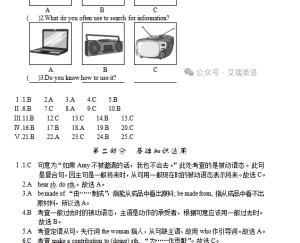
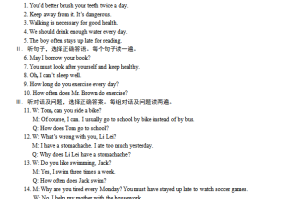


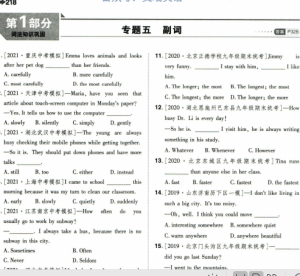
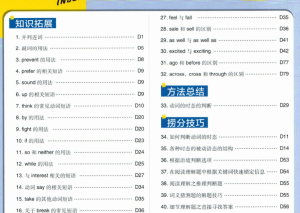
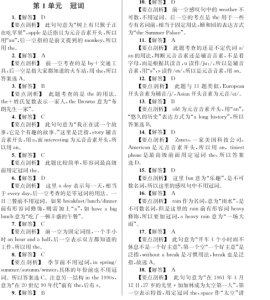
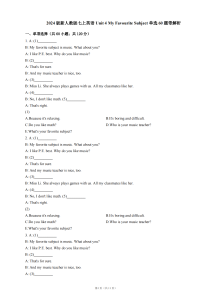


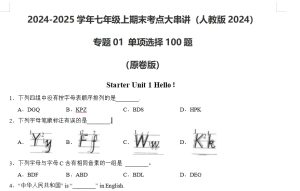
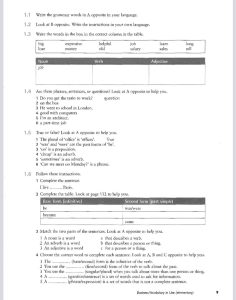
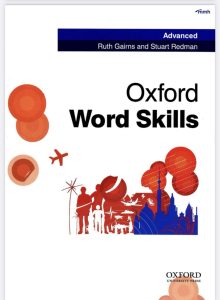




暂无评论内容